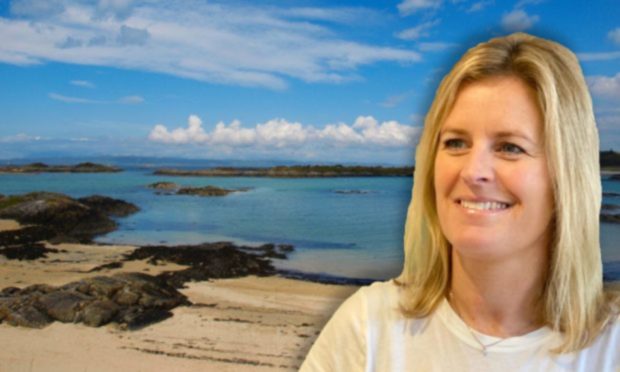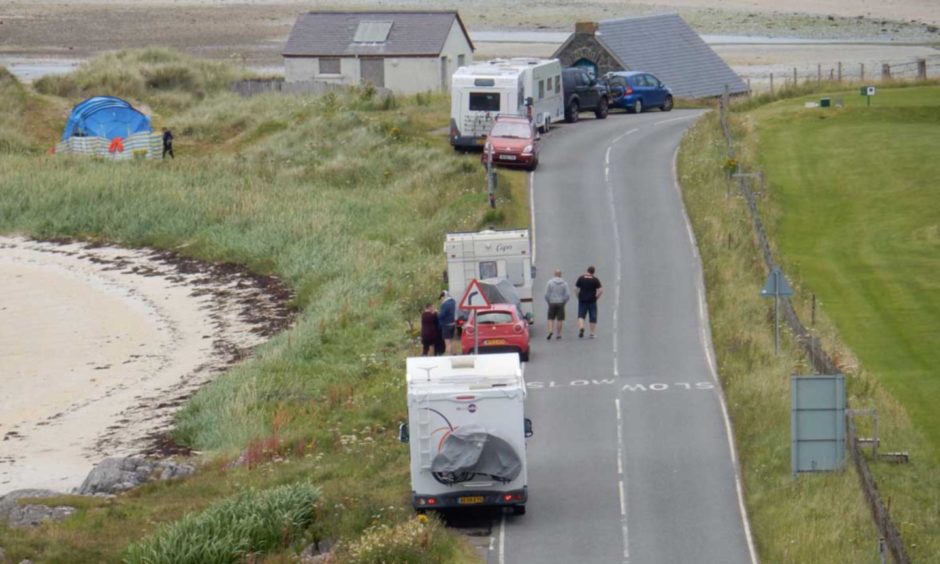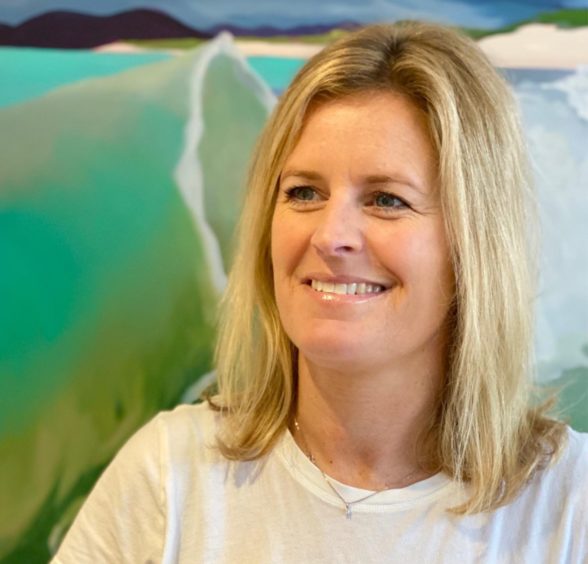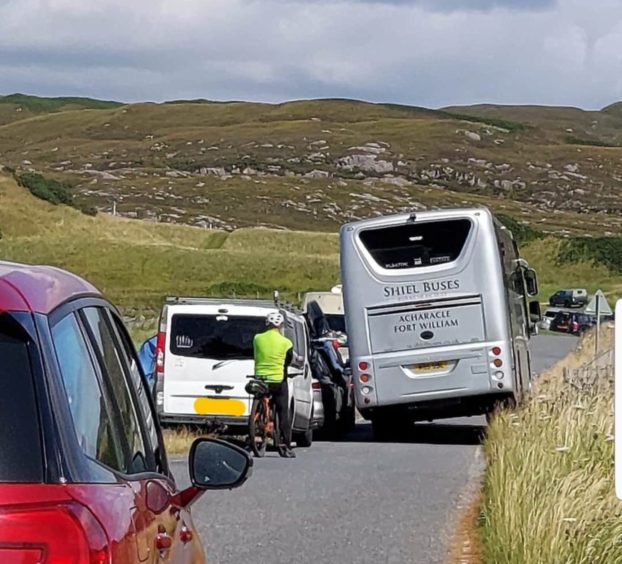Scottish artist Hope Blamire, who showcases some of the country’s most stunning beaches, believes a change in the right-to-roam law is need to protect them from being overwhelmed during staycations.
Coastlines all over the UK have been inundated with campervans and holiday homes during the coronavirus pandemic.
However, while many respect the natural environment, some have been seen leaving mess, human waste and burning marks into the ground.
‘You can’t gloss over reality of what’s happening’
Hope Blamire is currently staying in the Arisaig area, south of Mallaig, and has witnessed “disrespect” from visitors enjoying staycations on beaches in recent days.
The artist has counted 37 caravans and motorhomes parked on fragile ground at the beautiful Traigh Beach – causing obstructions to traffic “without a care in the world”.
Meanwhile, she has also encountered tourists “unashamedly” admitted they are walking to the beach to defecate.
And she has reported seeing 32 burnt areas of grassland on beaches in the area.
Mrs Blamire, who has described the issue as “the ugly truth”, said: “We live in England now so could visit last year due to the restrictions. I heard about what was happening though and it broke my heart.
“The lack of respect and the ignorance shown by these visitors to, not only the beautiful landscape, but to the people who live here is abhorrent.
“Public toilets have been put in place at Traigh, thanks to local crowdfunding, and now the person who cleaned these facilities has resigned because they couldn’t tolerate the abuse any more.
“I despair, I don’t like saying things like this, but I believe you can’t gloss over the reality of what’s happening, people need to be aware.
“I know the community and the council have been trying to create more car parking and campsites but it’s only possible if there is land available.”
Police and council struggling to control situation
In recent days Mrs Blamire has been talking to Highland Council and the police about the issue.
However, while both are very concerned about the issue, both are effectively powerless to control the situation.
The artist believes only a change in the Scottish right-to-roam law can help change attitudes to protect the natural environment for visitors and locals alike.
She said: “The legislation from the Scottish Government does not prohibit fires, so the ignoramuses think it’s ok to do it.
“People are taking down local crofters’ fence posts to burn so they can have a fire on the beach.
“There are only two police officers here, so unless they catch somebody in the act, there’s not much they can do.
“The council and police are trying to do what they can to control the situation, but until people stop turning up unplanned like this, and the Scottish Government steps in and listens to the changes needed to the legislation, this picturesque area will be ruined.
“This wouldn’t be necessary if people behaved with decency.”
What is right to roam?
Scottish laws allow people public access to land and the countryside.
However, the right only applies when individuals are behaving responsibly.
The Scottish Outdoor Access Code described acting responsibly with three basic principals – showing care for the environment, taking responsibility for your actions and respecting the interests of others.
It allows for a range of activities including wild camping as well as horse riding and cycling.
Special mention is made of taking care not to disturb local residents, especially after dark.
Courts have jurisdiction to resolve disputes about what constitutes responsible behaviour and where access rights apply.



